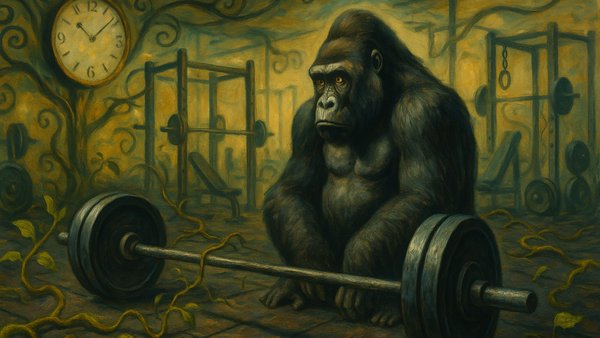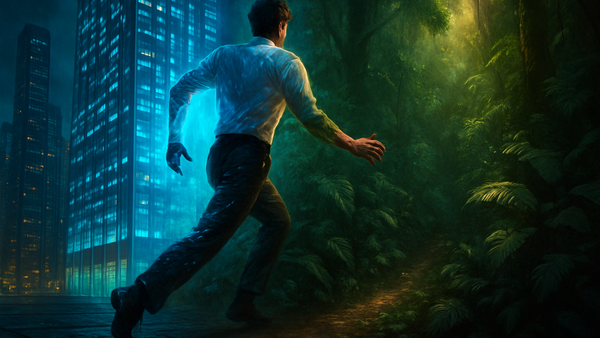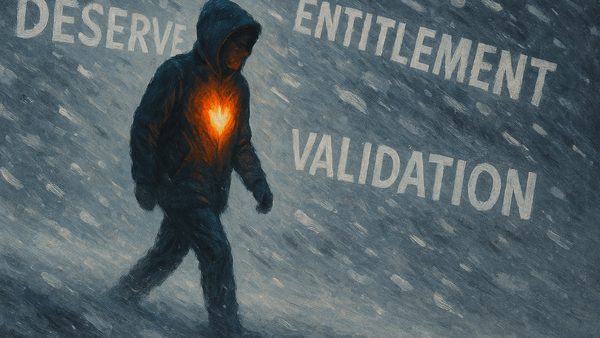We All Got Enough Problems
Why are you so invested in everyone else’s mess? Learn why their problems might just be your favorite escape from your own. This week’s issue is about history, climate change, and death.
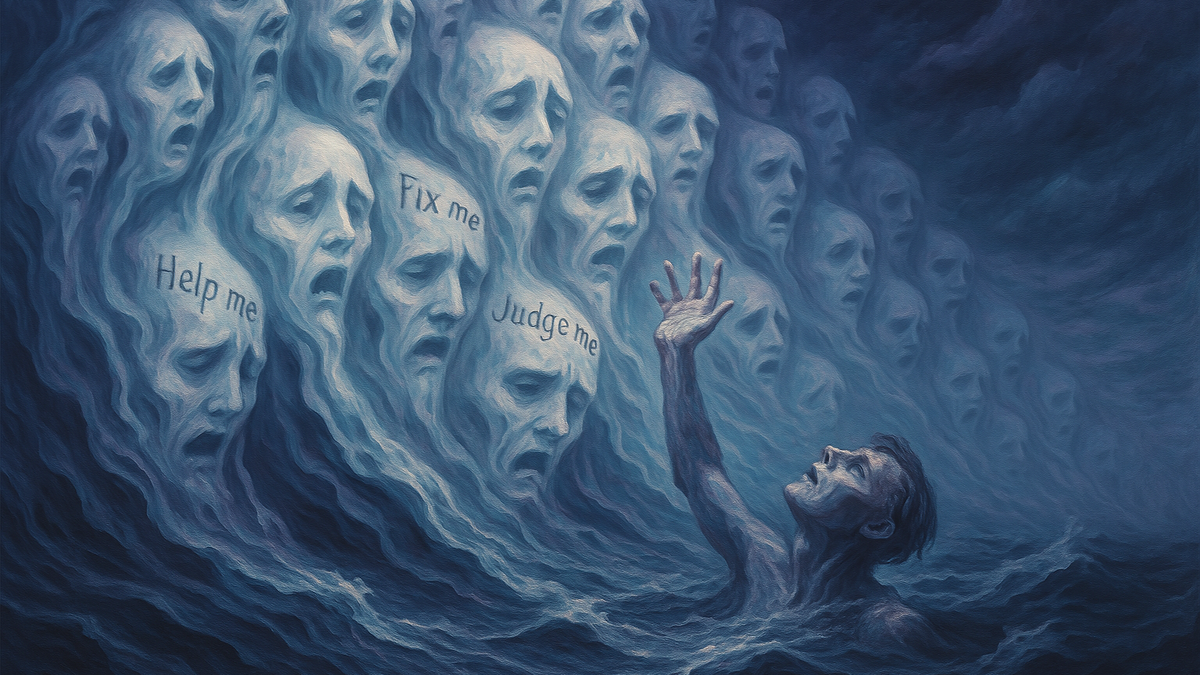
Why do we concern ourselves so eagerly with the troubles of others? Because it feels good.
Complaining, criticizing, judging, shaming, mocking—as well as consoling, advising, or endlessly “checking in”—these are not acts of moral clarity and insight. They all spring from the same rotten root: avoidance. More precisely, avoidance of the self.
To confront one’s own deficiencies is laborious. It demands time, emotional discipline, and the slow, humiliating grind of ego death. There is nothing glamorous about this task. It offers no applause, no immediate reward. Only slow, unremarkable progress—often accompanied by discomfort.
By contrast, meddling in the affairs of others is effortless. It requires no courage, no work, and no accountability. It grants a temporary sense of accomplishment and superiority without the burden of genuine transformation. So deliciously cheap—and deceptively satisfying—is this fast food for the soul. Emotional junk one can binge without immediate consequence. Concerning oneself with others’ problems is, in essence, emotional indulgence masquerading as the hard-earned authority that only self-mastery can rightfully bestow.
It’s easier to whine about your boss than to become someone who doesn’t need one. Easier to rant about society than to bring order to your own chaos. Easier to point a finger than to face the mirror.
Each time we take this path, we reinforce a seductive illusion: I am not the problem. That we are either innocent or irrelevant. And over time, that illusion calcifies into a comfortable cage—a Matrix of our own design.
We trade potential for comfort and discomfort for righteousness. We’d rather feel right than become right.
But here’s the catch: one cannot ascend while clinging to the belief that ascent is unnecessary. One does not rise while insisting the fault always lies below. No lasting clarity comes through projection. No true freedom through distraction.
You cannot be truly good without becoming good.
So next time you’re tempted to sip the sweet poison of someone else’s chaos—pause. And ask, sincerely: Do I not have enough problems of my own?
⏤Ferdinand
✨ Sunday’s Sparks
🌐 Website: Histography
An interactive timeline that stretches from the Big Bang to Beyoncé. This beautifully crafted web tool lets you explore thousands of historical events through a scrolling, clickable map that feels like time itself is unfolding beneath your fingertips. Ancient wars, philosophical revolutions, moon landings and medieval tantrums—it’s all there—organized, alive, and astonishingly addictive to just play around with.

🧬 Science: Melting Ice Reveals Remains of 5,900-Year-Old Trees in Wyoming, Uncovering a Long-Lost Forest
Fascinating discovery on the Beartooth Plateau in Wyoming: the remains of 5,900-year-old whitebark pine trees, preserved in ice and only recently revealed due to melting caused by rising temperatures linked to climate change. Researchers dated the trees to between 5,950 and 5,440 years ago—a period marked by global cooling due to significant volcanic eruptions. These remnants now serve as a climatic time capsule, offering rare insight into ancient environmental conditions. Notably, the whitebark pine is currently listed as threatened due to a mix of rising temperatures, drought, and invasive pests.
Discoveries like these are especially captivating in the context of today’s hyper-emotional discourse around climate change. We’re currently living in an interglacial period—the so-called Holocene epoch—a recent warm window that began around 11,700 years ago, nestled between the colder glacial periods of the ongoing Quaternary Ice Age, which began about 2.6 million years ago—a time during which civilizations have thrived. In other words, the ice age we’re currently living in is one where the ice is more retreated, and temperatures are warmer than during the extreme cold of the glacial periods. It’s during this warmer stretch that human civilizations have flourished.
Eventually, another glacial period will return, as has happened countless times in the past, driven by natural long-term cycles known as the Milankovitch cycles—the long-term changes in Earth’s orbital characteristics:
- Obliquity: The tilt of Earth’s axis shifts over ~41,000 years, influencing how solar energy is distributed across latitudes.
- Eccentricity: Earth’s orbit oscillates between more circular and more elliptical shapes every ~100,000 years, affecting the distance to the Sun throughout the year.
- Precession: The conical wobble of Earth’s rotational axis, changing axis orientation over a period of ~26,000 years.
During the Pliocene (about 5 to 3 million years ago), Earth was markedly warmer than today, with minimal polar ice and sea levels estimated to be ~25 meters higher than current levels. And in the Eocene (roughly 56 to 34 million years ago), tropical conditions prevailed even at the poles, with sea levels up to ~150 meters above present. These epochs remind us that Earth’s climate has always been in flux, driven by forces deeper and older than modern panic dares to admit.
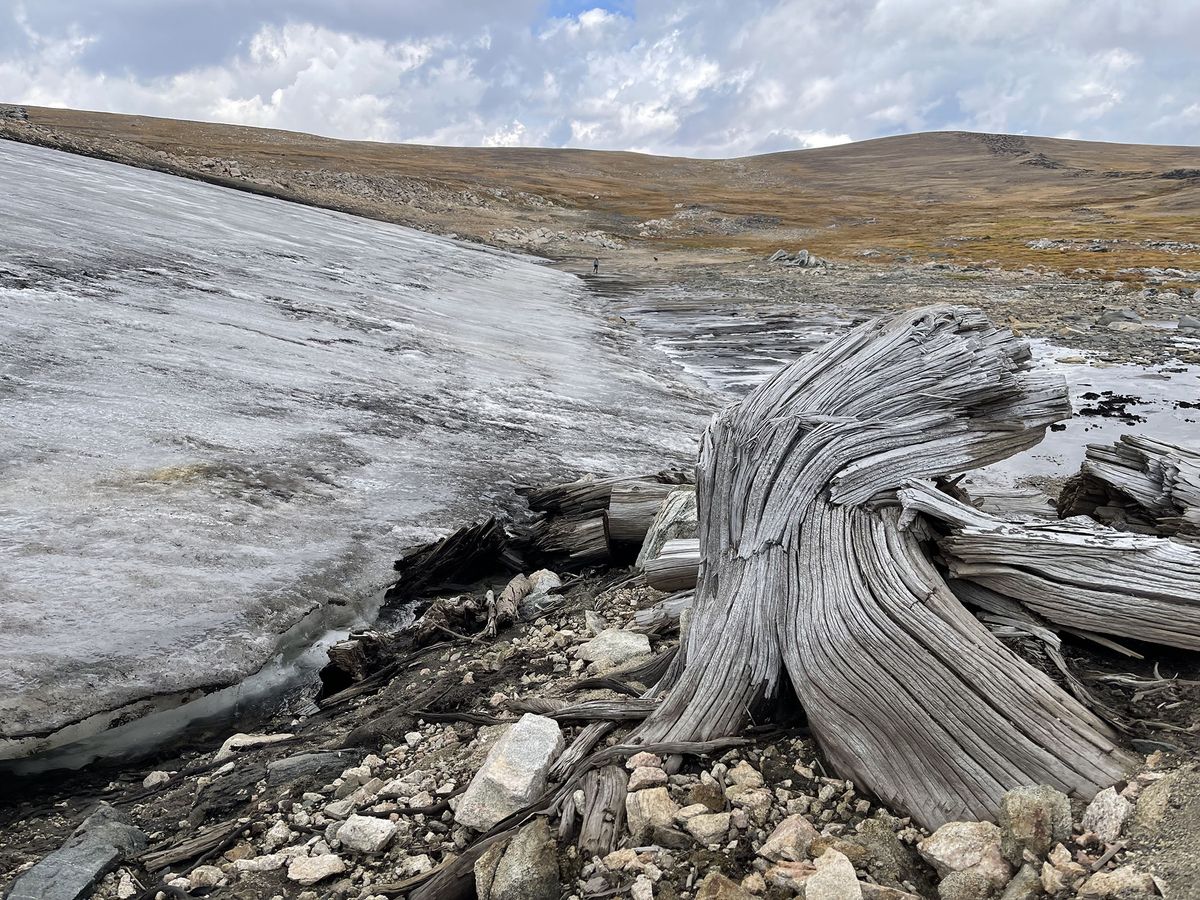
📚 Book: Tuesdays with Morrie, Mitch Albom
Heartfelt memoir capturing the final lessons of a dying professor, offering profound insights on love, work, regret, and the meaning of life. Through weekly meetings, Albom reconnects with his former mentor, Morrie Schwartz, who, while battling the debilitating effects of ALS (Amyotrophic Lateral Sclerosis—a progressive neurodegenerative disease affecting nerve cells in the brain and spinal cord), shares wisdom on living fully and facing death with grace. A deeply moving reflection on human connection, mortality, and what truly matters.
“Mitch, I don’t allow myself any more self-pity than that. A little each morning, a few tears, and that’s all.” I thought about all the people I knew who spent many of their waking hours feeling sorry for themselves. How useful it would be to put a daily limit on self-pity. Just a few tearful minutes, then on with the day. And if Morrie could do it, with such a horrible disease… “It’s only horrible if you see it that way,” Morrie said. “It’s horrible to watch my body slowly wilt away to nothing. But it’s also wonderful because of all the time I get to say good-bye.” He smiled. “Not everyone is so lucky.” I studied him in his chair, unable to stand, to wash, to pull on his pants. Lucky? Did he really say lucky?
💡 Sunday’s Wisdom
The most intelligent of the Nazis, the legal theorist Carl Schmitt, explained in clear language the essence of fascist governance. The way to destroy all rules, he explained, was to focus on the idea of the exception. A Nazi leader outmaneuvers his opponents by manufacturing a general conviction that the present moment is exceptional, and then transforming that state of exception into a permanent emergency. Citizens then trade real freedom for fake safety. When politicians today invoke terrorism they are speaking, of course, of an actual danger. But when they try to train us to surrender freedom in the name of safety, we should be on our guard. There is no necessary tradeoff between the two. Sometimes we do indeed gain one by losing the other, and sometimes not. People who assure you that you can only gain security at the price of liberty usually want to deny you both. You can certainly concede freedom without becoming more secure. The feeling of submission to authority might be comforting, but it is not the same thing as actual safety. Likewise, gaining a bit of freedom may be unnerving, but this momentary unease is not dangerous. It is easy to imagine situations where we sacrifice both freedom and safety at the same time: when we enter an abusive relationship or vote for a fascist. Similarly, it is none too difficult to imagine choices that increase both freedom and safety, like leaving an abusive relationship or emigrating from a fascist state. It is the government’s job to increase both freedom and security.
From On Tyranny
by TIMOTHY SNYDER
Captured with the powerful Kindle reader.
Did this issue spark something in you? Fuel Sunday Sparks’ independence.
Flows straight into content, not coffee.



